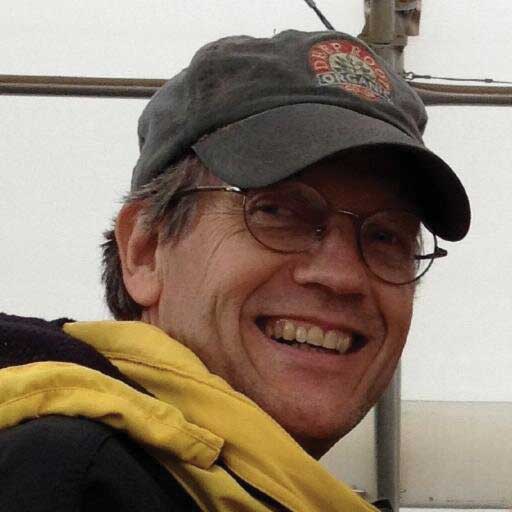Herder creates the SOLE

Jan Herder
“The knowledge no longer resides in the expert, but in the network,” said Jan Herder, the director of Dibden Center of the Arts.
Herder’s teaching philosophy is SOLE: Self-Organized Learning Environment. In a 2013 TED Talk, Sugata Mitra said SOLE and the internet were the future of learning and teaching, in a variety of settings and institutions.
Herder is passionate about sharing the philosophy of SOLE and the peer-to-peer learning environment that it can help create. Dibden incorporates SOLE principles; It’s what Herder practices and preaches.
The SOLE cannot exist without the internet.
“The online piece is absolutely critical for a learning community,” said Herder. It provides environment where clocks don’t mandate learning and sharing: one student can post at 2 a.m., and another can get creative at 7 a.m.
Multiple Dibden-inspired, student-created Facebook pages exist to help create this internet piece.
Herder noted that the internet allows instructors to expose students to a variety of experts from anywhere in the world at anytime.
“What that does to the teacher’s roles is change that fundamentally,” Herder said. “It’s [now] facilitation … the learning community [in Dibden] is a student-centric one, not a faculty-centric one.”
The physical place of the Dibden learning environment is as important at the online place. “We have a home for people to be in . . . I’ve tried to make Dibden homey, to have that sense of safety and support,” said Herder. “[We] blur that idea that the class ends at 2:15 and go away.”
Herder spoke of authentic task versus contrived task. Contrived tasks are exercises that help students learn something, but fall short of feeling real if this is all a student is doing.
“If a learning community is built on a contrivance, instead of having authentic purpose, you lose that communal feeling,” said Herder. “We have authentic purpose because we produce events. That’s huge.”
Herder says faculty must make their students feel empowered and have ownership to battle an unhealthy balance of less authentic tasks.
“It’s not about gaining the knowledge, it’s about putting it to use,” he said. “It’s a waste of your time for me to tell you stuff you can find on Google. That’s not what we’re here for anymore. That’s a huge change in education.”
Dibden attempts to incorporate UDL, the Universal Design for Learning, a popular teaching philosophy. “It’s basically that learning should be appropriate for all types of learners, regardless of background, regardless or strengths, age, skills, regardless of anything,” said Herder. “I try to facilitate so there are multiple means of expression, and multiple ways of learning, that encourage multiple types of learners.”
The Dibden community consists of actors and costume designers, technical engineers and business majors, set designers and natural born leaders. Students and faculty collaborate and share.
“When you get an environment that’s student-centric, you get things happening that aren’t always expected, that aren’t scripted, that aren’t in the curriculum,” said Herder. “That opens you up to emergent learning. Ideas and experiences come up that might not if you have a very scripted curriculum. There is a curriculum here, of course, and there’s a hidden curriculum as well, but if you can find some of the gaps in between those . . . then you have a whole different opportunity to learn things in unexpected ways . . . it’s kind of messy.”
This type of learning is why teacher has moved from expert and instructor to facilitator, to encourage a student propelled community, while helping clean up and tackle the messes and difficulties that will arise; to point students in the right direction and provide resources. Students themselves will become teachers and facilitators as their passions and expertise are found. A learning environment must allow and encourage this evolution.
Herder suggests to all JSC instructors, “empower your students . . . engage them.” To learners, he says, “connect what you’re learning to yourself . . . to what’s important to you .”
More about learning environments based on peer learning and SOLE principles, and examples of these at work, can be found in the Peeragogy Handbook.
Travis LeClair joined the Basement Medicine staff in Spring 2014, assuming the position of staff reporter.


